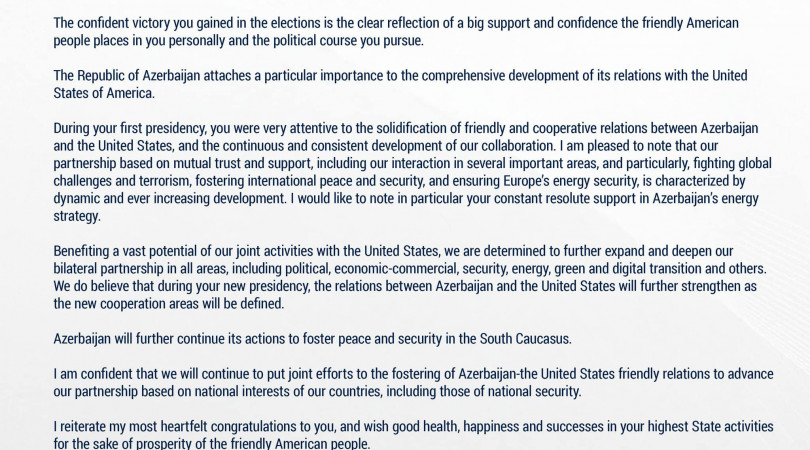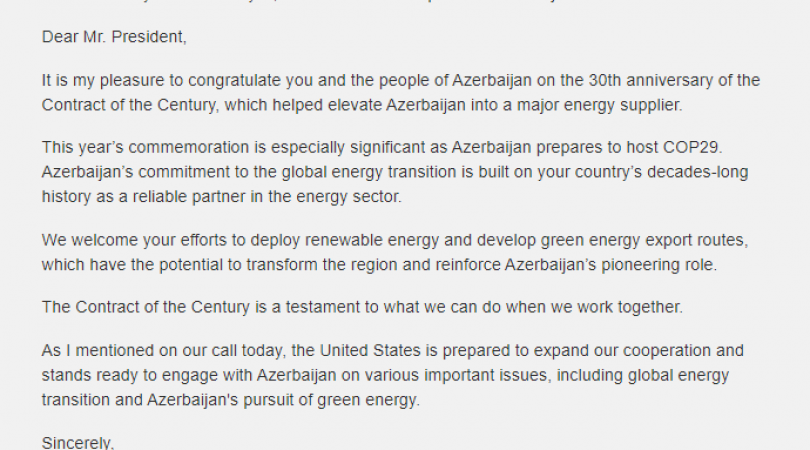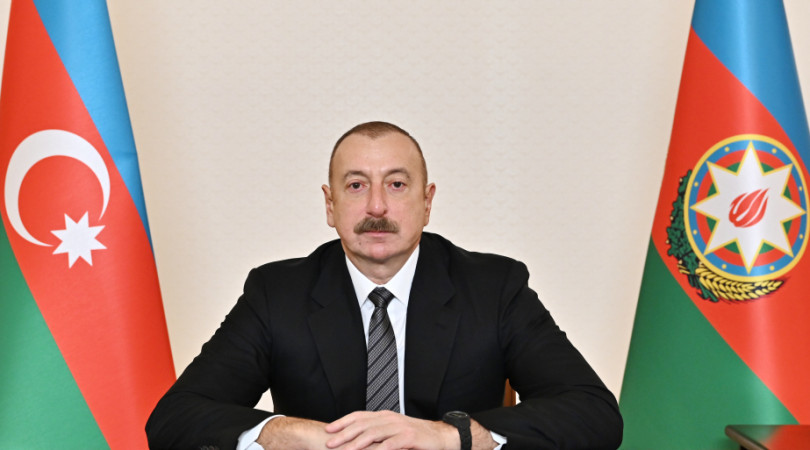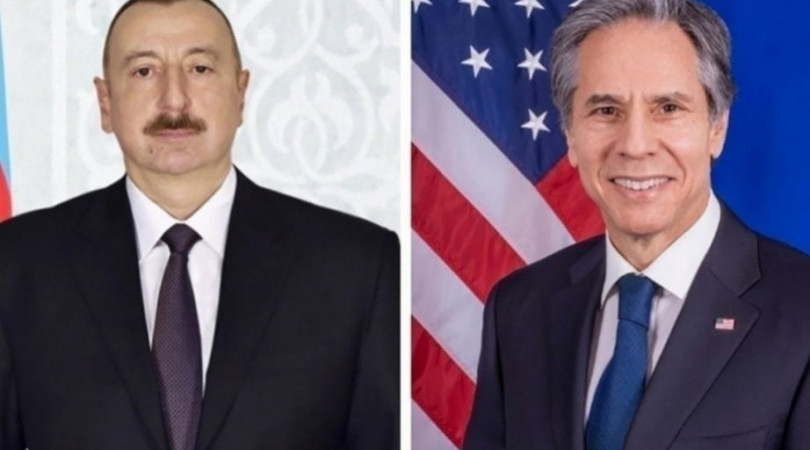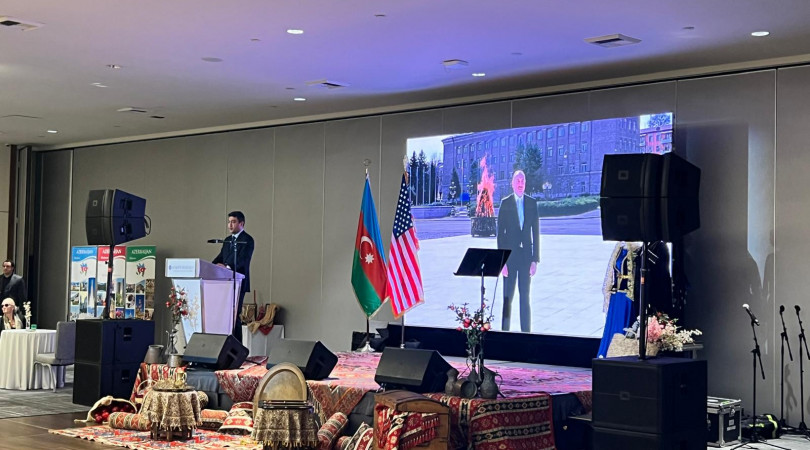Azerbaijan Jews know fears of Nagorno-Karabakh 'Cultural Genocide' unfounded
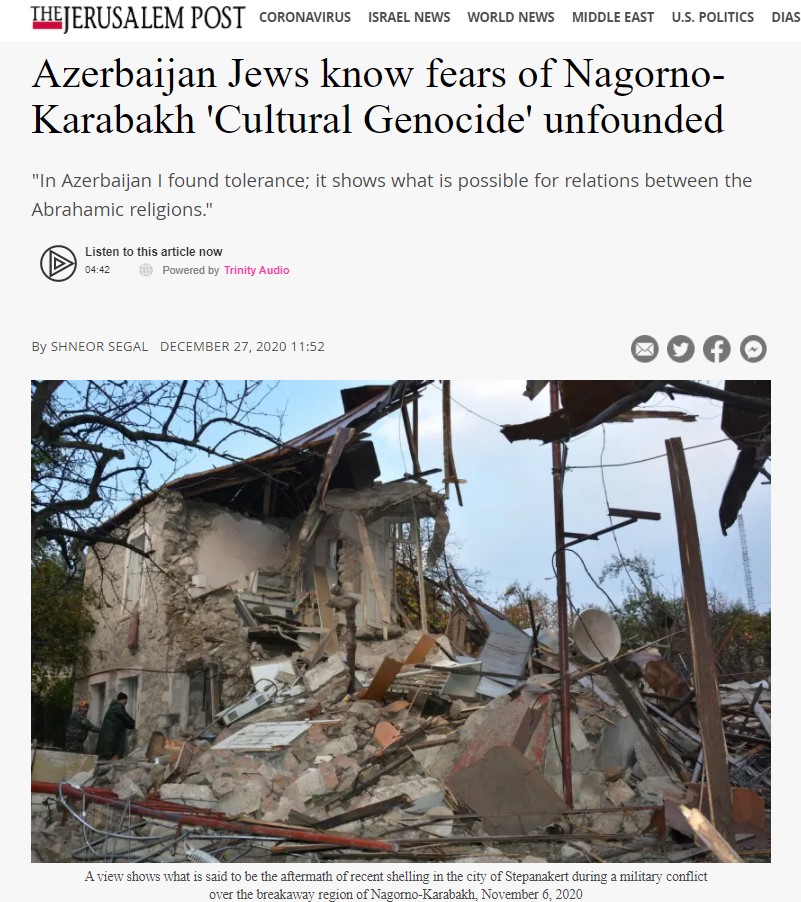 Article by Shneor Segal, chief Ashkenazi rabbi of Azerbaijan:
Article by Shneor Segal, chief Ashkenazi rabbi of Azerbaijan:
When peace was announced in Nagorno-Karabakh last month, celebrations in the streets of Baku – Azerbaijan’s capital – were to be expected. Following 30 years of illegal occupation, some 700,000 displaced Azerbaijanis were going to be able to return home.
Perhaps not so expected was the sight of Israeli flags flying proudly alongside those of Azerbaijan throughout these celebrations.
As an Azerbaijani, a Jew and a religious leader, this came as no surprise to me. Azerbaijan is not – as portrayed in some parts of the media – an intolerant Muslim nation locked in a religious conflict with Christian Armenia. Instead, Azerbaijan is a place of religious and cultural tolerance and inclusivity in a region fraught with ethnic and religious tensions.
Within our 25,000-person-strong Jewish population, the thriving Ashkenazim are joined by Georgian Jews and our own, unique and ancient mountain region Jewish community. Together, we live among both Sunni and Shia Muslims as well as various branches of Christianity, including a small Catholic community. There are even 30,000 Armenians who – for generations – are happy to call Azerbaijan home.
And we live and work closely together. When the Azerbaijani state granted land to the Catholic community to build a new church, it was the country’s Muslims and Jews that came together to help finance it. In 2016, Pope Francis held mass in that same church and was struck by the strong relations between us. “These good relations assume great significance for peaceful coexistence and for peace in the world,” Pope Francis told our people. “They demonstrate that among followers of different religious confessions, cordial relations, respect and cooperation for the common good are possible.”
That is the Azerbaijan that I recognize. The picture currently being painted in the international media is one I do not know. Least of all, do I recognize the depiction of a revenge-hungry nation of “Muslim Invaders” bent on erasing all traces of Armenian Christian cultural heritage from the lands that are to be returned to Azerbaijan under the new peace agreement.
The ugly phrase “Cultural Genocide” has appeared in more than a few headlines. These reports are fueling hysteria on the ground with Armenians in the area frantically dismantling crosses from churches and even burning down their homes. In one recent Bloomberg report, one ethnic Armenian resident of the Kalbajar region turns to the camera and says: “in the end we will blow up or set fire [to our house], rather than leave anything to the Muslims.”
IT IS a position to which I could have once related, perhaps. I came from Israel before becoming chief rabbi in Azerbaijan. It is no secret that relations between Jews and Muslims need improvement. Yet, I mistook those relations as nearly universal. So, when I received the offer to become chief rabbi in this nominally Muslim country, I was inclined to turn it down. That changed when I visited Azerbaijan.
Here, I found tolerance; it shows what is possible for relations between the Abrahamic religions. It is heard from the top but is also clear on the street. The kippah is worn with pride. And the door to my synagogue remains open at all times, at a time when many across Europe are closed to the outside for fear of attack.
Jews know only too well what it is like to be portrayed unfairly by the media. Accordingly, I feel compelled to stand up and voice my defense of my Muslim brothers and sisters in Azerbaijan. There is a wealth of precious Christian cultural heritage throughout those lands – until now held by Armenian forces – thousands of churches, monasteries, graveyards and other artifacts. Like all precious heritage they must be protected, in a way that so much Azerbaijani Muslim heritage in Nagorno-Karabakh was not.
Any suggestion that Azerbaijan would behave similarly is not grounded in reality. As I have noted, protecting the different cultures that make up this diverse country is a national priority, and one where Azerbaijan’s record speaks for itself. Azerbaijan even funds the restoration of Christian monuments and artifacts internationally. There are too many examples to list here, but most notably this includes St. Peter’s Basilica in the Vatican, the Catacombs of San Sebastiano in Rome and the 14th century stained glass windows of the Strasbourg Cathedral. Now, the Azerbaijani government has partnered with UNESCO to protect and sensitively restore the Christian heritage of Nagorno-Karabakh.
Despite this, fears of cultural war persist. People will seek something to fill the news vacuum left by the end of the military war. Peace has been agreed on paper, but real peace will take some time to achieve. Sadly, divisions remain without us stoking more. The focus must now be on bringing together the many different races, cultures and religions that make up this diverse and ravaged region. This may seem like a monumental task, but I know it is possible. Azerbaijan is the proof.
Source: The Jerusalem Post

